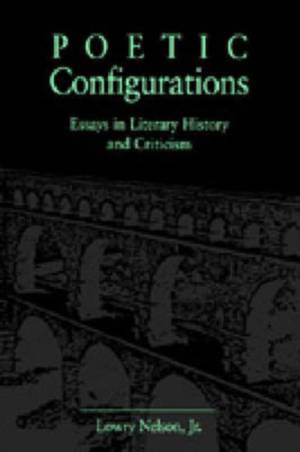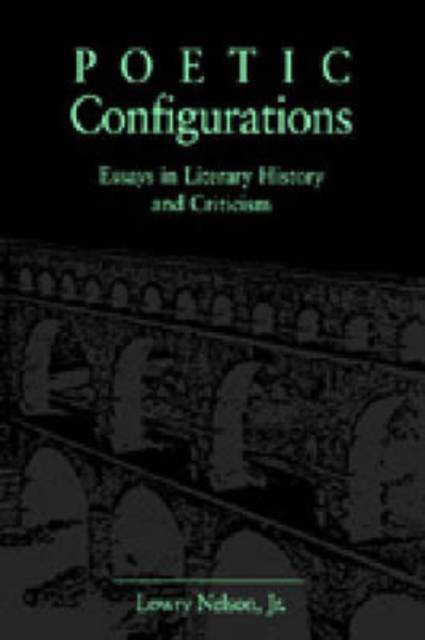
- Afhalen na 1 uur in een winkel met voorraad
- Gratis thuislevering in België vanaf € 30
- Ruim aanbod met 7 miljoen producten
- Afhalen na 1 uur in een winkel met voorraad
- Gratis thuislevering in België vanaf € 30
- Ruim aanbod met 7 miljoen producten
Omschrijving
In the vast diversity of Western civilization, poetry has traditions both national and international that span three millennia. To write a coherent critical history of even just lyric poetry would be perhaps beyond human powers, by in his essays Lowry Nelson finds it possible to take soundings--in great epochs of inventiveness and of changing sensibility; in the extremes of expressivity; in the reader's varying fictive role--while setting in appropriate contexts works of such poets as Horace, the early Troubadors, St. John of the Cross, Shakespeare, Wordsworth, Leopardi, Baudelaire, and Vyacheslav Ivanov.
Each essay has a different scope and emphasis within the apparently limitless range of possibilities. Nelson's arrangement of the essays is chronological, though only roughly so; many issues and examples could be explored in other contexts. Yet there is a presiding view of literature that is commonly designated as comparative, stressing some degree of universality; poets happily transgress frontiers and barriers; one tradition absorbs others in its own way, as in the poetics of Roman and medieval Latin, the Provensals, Petrarch and Petrarchism, Symbolism, and Modernism. Nelson observes only one restriction. He concentrates on lyric poetry, although much that he examines can be applied to other forms.
Specificaties
Betrokkenen
- Auteur(s):
- Uitgeverij:
Inhoud
- Aantal bladzijden:
- 332
- Taal:
- Engels
Eigenschappen
- Productcode (EAN):
- 9780271026596
- Verschijningsdatum:
- 15/04/1992
- Uitvoering:
- Paperback
- Formaat:
- Trade paperback (VS)
- Afmetingen:
- 152 mm x 229 mm
- Gewicht:
- 485 g

Alleen bij Standaard Boekhandel
Beoordelingen
We publiceren alleen reviews die voldoen aan de voorwaarden voor reviews. Bekijk onze voorwaarden voor reviews.









